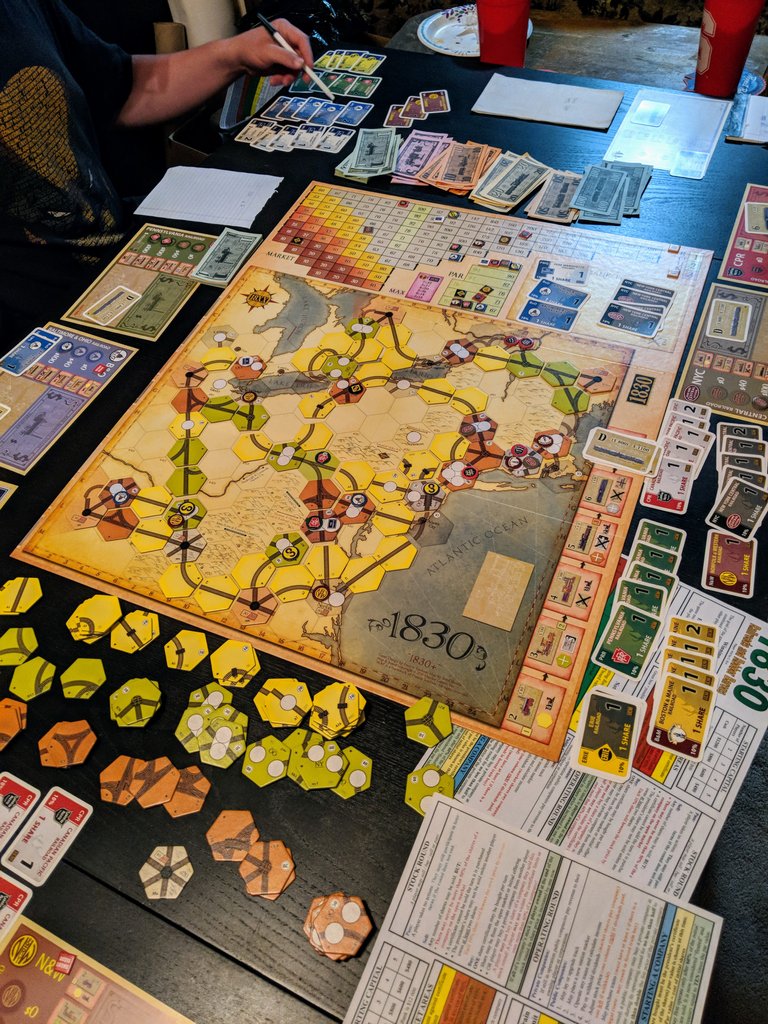
This past Sunday I played a fantastic, nine hour game of 1830 with a few friends. For those of you not familiar with the 18XX series of games, over the course of those hours the three of us bought stock in historical train corporations and played as the presidents (tasked with laying track, running trains, &c ) of the corporations in which we held the plurality of stock.
It started weird from the get-go - I have only played a couple of times and the other two (RB & WW) were entirely new to 18XX style games. WW bought up the most expensive private companies right away, while RB and I bargained over the others. I ended up with northern-based private companies (free tile placement near Montreal, free share of New York Central) while RB got the southern ones.
For the record, we were playing with the "Scenario 1.0" variant, which makes smaller public companies a bit more viable.
Over the next few hours, while I struggled to get the Canada Pacific to make a decent profit with a run into New York, RB blew me away with a very profitable Norfolk & Western. To my absolute surprise, WW was unable to get the Baltimore & Ohio up and running until several turns in - it never turned into the powerhouse it usually becomes due to some sneaky maneuvering on RB's part.
I made two huge mistakes over the course of the game: I thought I could bankrupt RB at one point as he was playing a little fast and loose with his finances and, generally, I never was able to place station tokens to choke off RB's trains (WW should have, as he was in direct competition, but he didn't). Regarding the bankruptcy - I thought I could force one of RB's companies to buy a train, so I tanked the stock on his other one. Had this worked, it would have halved his net worth and made it me (with a high-value company) against WW (with two low-value companies).
Smack dab in the mid-late game transition, WW pulled off a masterful move - for whatever reason (probably the abundance of rules!) RB and I had forgotten that buying a diesel train meant that all "four" trains rusted (that is to say, trains capable of stopping in a maximum of four cities were removed from play). Between RB and I, we had six companies and only two trains better than "four". WW played us like a fiddle - buying the expensive diesel train and creating chaos on the game board as companies were forced to buy trains - and forced to use RB and my personal money to do so!
With my blunders and against the skillful play of RB and WW, I ended up coming in last - about $2,000 behind the winner, RB. We had a hell of a time playing and both WW and RB are excited to play again.